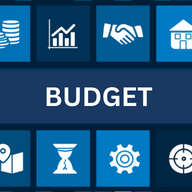Major relief on E-Way Bill in March 2018

GST
378 week ago — 2 min read
As I have written earlier on this forum, an Electronic Way Bill (E-Way Bill) is a tool that ensures goods are transported in compliance with GST Law. It is an effective measure and tracks movement of goods and checks for tax evasion.
An E-Way Bill is basically a compliance mechanism wherein by way of a digital interface the person causing the movement of goods uploads the relevant information prior to the commencement of movement of goods and generates an E-Way bill on the GST portal.
The government has announced major relief in the E-Way bill rules vide notification No. 12/2018 – central tax dated 7th March, 2018, with key amendments as below:
1. Limit of INR. 50,000 for E-Way bill to be applied to individual consignment and not on the total value of consignment in a vehicle
2. INR. 50,000 limit will be calculated after reducing the value of exempted goods if any in an Invoice
3. Vehicle details are not required on E-Way bill for intra-state movement of good upto 50 Kms (earlier 10 Kms)
4. Job Workers can also generate E-Way bill for interstate movement of goods
5. Mandatory requirement for production of E-Way bill (wherever applicable) at the time of delivery by railways to plug leakage from transportation through railways
These changes will be a major relief for e-commerce companies, transport agencies, courier companies and small businesses.
To explore business opportunities, link with me by clicking on the 'Invite' button on my eBiz Card.
Disclaimer: The views and opinions expressed in this article are those of the author and do not necessarily reflect the views, official policy or position of GlobalLinker.
View Ritul 's profile
Most read this week













Comments
Share this content
Please login or Register to join the discussion